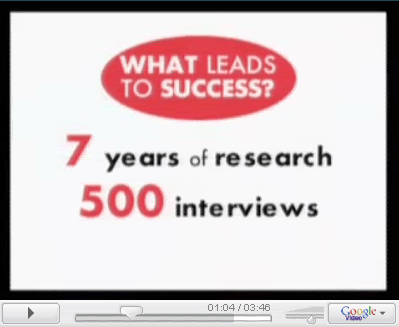Dear Friends.
I was recently lucky enough to hear a replay of "Global Pool of Money Got Too Hungry" from NPR and "The Giant Pool of Money" from This American Life.
You can listen to the first NPR 13 minute show here
Or an hour-long version from This American Life Here
From NPR: THE GIANT POOL OF MONEY
Clarence Nathan was a man with three part-time jobs who earned about $45,000 a year, and yet a bank loaned him $540,000. The bank never checked his income."I wouldn't have loaned me the money, and nobody that I know would have loaned me the money," Nathan said. "I mean, I know guys who are criminals who wouldn't lend me that money, and they'd break your kneecap."
But this kind of lending happened, over and over again since 2003, leading to the mortgage crisis that has disrupted the global economy.
How did this mess happen? Through the news media you can pick up bits and pieces. But how many people really understand the housing crisis, why Bear Stearns went under, or sub-prime mortgages, or why the rest of the world was pulled under too?
These questions have bugged This American Life producer Alex Blumberg since early 2006 when someone told him about a NINA mortgage loan -- no income, no assets needed.
"Because I'm not much of a financial person, all my friends grew bored of talking about it with me," he said. The exception was Adam Davidson, NPR's international business and economics correspondent. Friends since working at WBEZ in Chicago in the 1990s, they've been talking about the housing crisis since before it became front-page news.
In an unprecedented public radio partnership between NPR and This American Life (distributed by Public Radio International), Blumberg and Davidson set out to learn what happened and why. What they found is mind-boggling. But more significantly, they tell their story in a fascinating, compelling way that anyone can understand.
On May 9, the pair debuted a 13-minute piece, "The Giant Pool of Money," on All Things Considered (ATC) with a joint introduction from ATC host Michele Norris and This American Life host Ira Glass. An hour-long version also appeared on This American Life.
"Thank you very much for the program that aired today on 'The Giant Pool of Money'," listener Nina Robbins wrote me. "It was, by far, the clearest explanation of the U.S. housing crisis -- the subsequent international financial crisis --that I have ever heard. It enabled me to finally integrate into a comprehensible whole all the previously incomprehensible pieces of information I had heard over the past months."
I agree.
The unusual partnership came about when NPR's Vice President for News, Ellen Weiss, ran into Ira Glass at a party at NPR's New York bureau. Glass has "always been the most generous and wonderful colleague and we talked about our mutual desire to do something together, and then we just looked for the right project," said Weiss. "Adam worked for TAL and so it was wonderful, organic and as I said, easy collaboration -- we just said yes and left the rest to the talented reporters and editors and got out of their way."
After the piece ran on ATC, the show was inundated with emails of praise. "The key: They asked the right questions," said Les Cook, NPR's business editor who handled the pieces. "How did bankers get to the point that they were loaning money to people who had no chance of repaying it? The explanations were quite sophisticated. And clear enough that people who don't know much about how Wall Street works could understand them.
"Davidson and Blumberg take you, the listener, along on their reporting journey where you meet (and in some cases may even like) the people who did the borrowing, the bundling, the loaning, the deceiving, and the profiting -- until it becomes clear that everyone involved is culpable.
"What makes this story interesting is that it's not a simple case of some bad actors, some criminals victimizing people," said Davidson, who began working with Blumberg on the story in February. "Sure, there were criminals at every step of the chain. But the core of this story is that almost everyone--from borrowers, to brokers, to bankers and wall street investors--effectively worked together: deceiving themselves and each other into believing that they could create massive wealth with little risk. Almost everyone involved was a victim and a victimizer at the same time."
The benefit of having two smart narrators is that they interrupt one another if something sounds puzzling, then explain it to listeners in a conversational style as if they were sitting together in a coffee shop.They also masterfully translate economic gobbledy gook.
To explain why a $70 trillion (yes, trillion) global pool of money shunned investing in the safe U.S. government and went instead into risky mortgages, Davidson and Blumberg played a clip from former Federal Reserve Board chairman Alan Greenspan that would go over the heads of most of us. They even apologize for quoting the inscrutable Greenspan.
Then Davidson translates. What Greenspan is really saying is, Davidson tell us, is: "Hey global pool of money, screw you. You are not going to make any money on U.S. Treasury bonds for a very long time. Go somewhere else!"
The pair admit that they "stole" their buddy-system narrative format, where they play off of one another, from WNYC's Radio Lab. "We were trying to mimic that," said Blumberg. " I actually sent them an email thanking them for letting us rip them off.
"Davidson said he's gotten no negative comments, which itself is an amazing outcome for a complex piece of journalism on a controversial subject.
"What I find the most satisfying is that the positive comments have come equally from people who know nothing about economics and people who are intimately familiar with the housing industry or other aspects of finance that we covered," said Davidson who joined NPR in 2004. "I can say, that by a very long margin, this is the most positive response I've ever seen to any story I've worked on.
"The same is true for This American Life. Since the show started in 1996, it usually gets five to 10 comments, according to Blumberg, who's worked there since 1997. After this piece aired, the show received nearly 100 emails.
Please listen to "Giant Pool of Money" on either All Things Considered or This American Life. Let's hope this isn't the last time NPR works with the ultra-talented Ira Glass' show. Kudos to Davidson and Blumberg for an extraordinary piece of journalism.
-30-
On Your Team
Jeffrey Stanton ITI, CLC, CNE, WOW
Your Trusted Advisor For Life
347-466-3047
One of the fastest ways to build a successful business is by training. Now, with me, I like to invest significant time immersing myself in training, while some people prefer to take it in bite-size chunks. Whatever your preference is, now is the best time to contact me.
If you have found this tip useful, please share it with any friends, family, colleagues and associates who you think will be interested. Feel free to print it (with credit and subscription information) and continue to enjoy the tips. I am always grateful for any comments, criticisms or other feedback that you may have. Please send them to feedback@jeffreysjournal.com
http://www.yourprofessionaldevelopment.com/
Certified Negotiation Expert (CNE) Designation - Training - Coaching - Consulting


































No comments:
Post a Comment